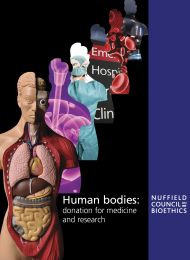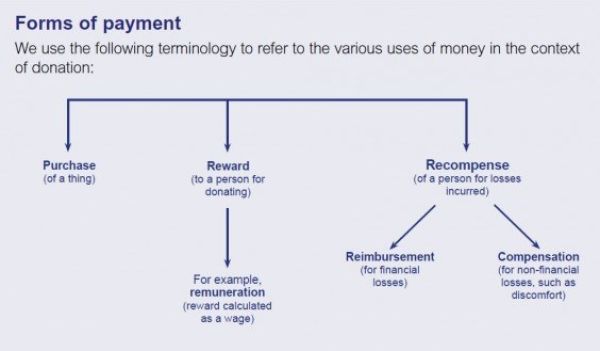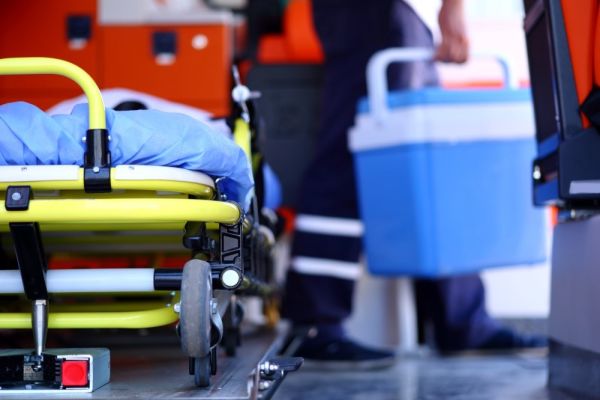Human bodies: donation for medicine and research
Report
Published 10/10/2011

The laws governing the donation of bodily material in the UK emphasise the importance of consent from the donor and set limits on commercial dealings in bodily material. However, the details vary significantly, depending on the type of material and the purpose for which it has been donated.
- Consent is almost always required before a person may donate material as a living donor, and they must be given information about what the procedure involves. After death, organs or tissue may be taken from the deceased if they had signed the Organ Donor Register or if their family give permission.
- It is against the law to offer or accept financial reward to donate blood, tissue or organs for the treatment of others. However, it is not explicitly illegal to offer or accept payment to donate these bodily materials for other purposes, such as research.
- Financial reward for donating eggs or sperm is against the law. However, women who agree to provide some of their eggs for another woman’s infertility treatment or for research (‘egg-sharers’) may receive free or reduced-cost infertility treatment for themselves from private clinics.
- People who donate their bodies after death to medical schools for medical education and training purposes may have their funeral costs paid by the medical school.
- People who volunteer to take part in clinical trials to test new medicines may receive payment to compensate them for their time, and for any discomfort and inconvenience involved.
- People who donate organs or bone marrow as living donors have all their expenses, including any lost earnings, reimbursed by the NHS. People who donate eggs and sperm are reimbursed a maximum of £250 for lost earnings.
- Expenses are also incurred by the professionals and organisations involved in donation and transplantation. Payment for the many medical and technical services needed to handle and process bodily material does not count as ‘commercial dealings’ and is allowed.
International comparisons
Although this report is mainly concerned with donation in the UK, both people and bodily materials cross national boundaries. People often travel to other countries, with different regulatory systems, for treatment they are unable to access at home. Bodily materials used in the UK may be imported from other countries. Examples of different regulatory systems in other countries include:
- Spain and Belgium have ‘opt-out’ systems for deceased organ donation, where it is assumed that people consent to donation unless they objected to this before they died, or their family objects.
- Iran permits financial reward for living organ donors through a nationally-organised system. It is the only country in the world to do so, and it does not permit foreigners to participate in the scheme. International bodies such as the World Health Organization, however, oppose any form of monetary reward in return for organs.
- Many states in the USA do not place any restrictions on paying for eggs or sperm for infertility treatment. Different amounts may be paid, depending on factors such as the education, appearance and social status of the person donating.


Share